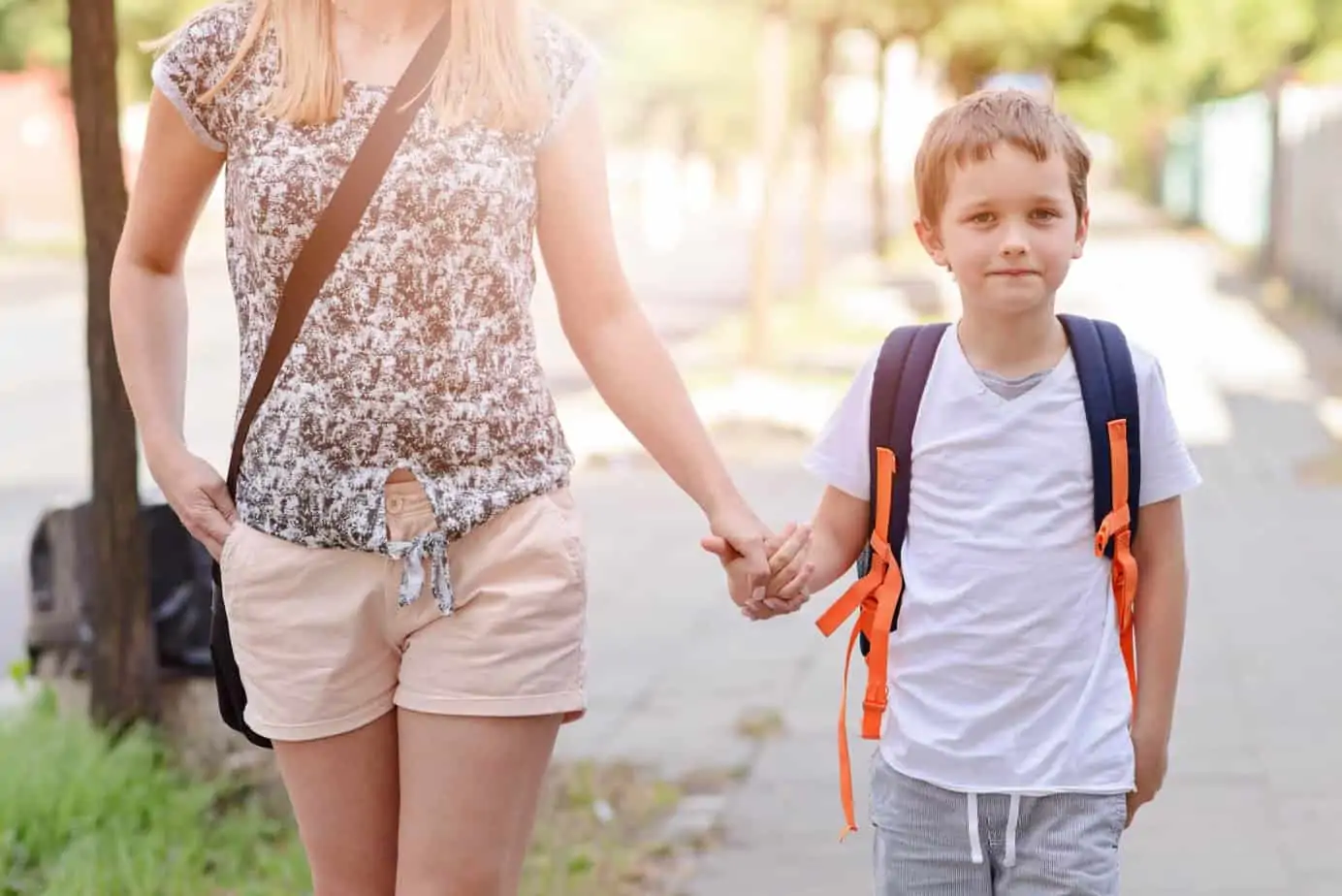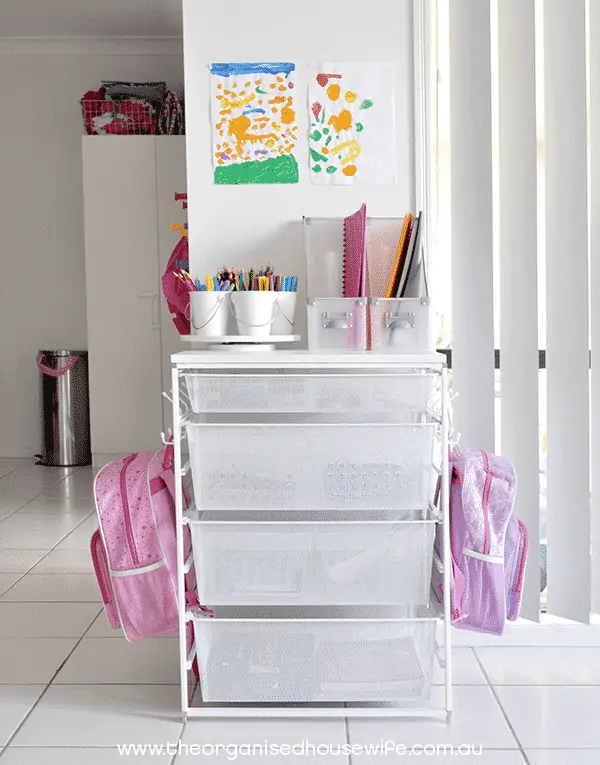“How is school going?” my Father-in-Law asked my son.
“Good.” A short one-word answer. Typical.
This is the go-to response when others ask one of the kids about school. I am so used to the questions and responses that I could almost give the play-by-play on how many vague questions they’ll ask, before giving up inquiring about school entirely.
“What did you do at school last week?”
“Stuff.” Ouch.
I was silencing doing a countdown in my head until the conversation would come to a screeching halt. It was one I knew myself, all too well.
“What are you learning about at school?”
My son finally gave a shoulder shrug before he jumped off the couch and raced outside to play.
And there it was. The end of the school questions.
I felt bad for my Father-in-Law, who was trying to engage with my son and unfortunately, didn’t understand that all questions about school that were vague would be fruitless.
BONUS: Download the After School Questions Printable
These are the basic questions I hear ALL THE TIME from grandparents, friends and relatives asking our kids about school. I silently shake my head because I know that they’ll elicit little to no reactions other than a ho-hum “good” or “fine,” sometimes a “nothing,” and usually a shoulder shrug before you’ve lost their attention entirely and they move onto something else.
Sound familiar?
I used to do this. I used to ask these questions too. Every single day.
It was my attempt at trying to pry any small pieces of information from my kids at pick-up. I was getting nowhere fast, and that’s why I changed tactics because I realized I didn’t really want to want to talk about school either.
What I really wanted to know is how my kids are doing in the school environment and among peers.
Of course I want to know about school,
but what I really want to know is
that my kids are doing alright.
I want to know how they felt at school without their Mom or Dad, how their classmates treat them and how they treat other people.
What do they like to do and don’t like doing?
I want to know if they’re being picked on or being made fun of.
I want to know if anyone – my kids or other people’s kids – eat alone at lunchtime or don’t have friends.
How do their teachers speak to them, are they caring and kind or short and brash.
Did their feelings get hurt and why.
Do they have friends they play with and do they feel like they fit in do they feel like an outsider.
I talk to the teachers about my children’s progress in school. I look at the work they bring home and observe how they handle homework. I read their body language and listen to the things they say under their breath. I see the calendar so I know what they’re learning about. I can email their teachers and attend parent-teacher conferences. We’re all set on school stuff.
When I ask my kids questions at the end
of the day… what I really want to know is
how they are doing.
ARE THEY OK?
When I made the shift to ask personal questions – my kids opened up. We now have conversations about their feelings, struggles, the little accomplishments that make them proud and the friendships they’ve formed.
Sure, I had to get crafty with my questions but once I made the shift and got personal and specific, I found that they wanted to open up to me.
And that’s the key – finding the things your kids want to tell you about for connection, for support, for comfort and for their confidence.
Kids want connection with parents – they crave it and need it – and more than anything, we want connection with our kids. When we ask them personal and sometimes hard questions about their emotional and mental health and wellbeing at school, we are deepening the connection with them, helping build their emotional intelligence and getting the inside track on how they are really (really) doing in school.
I understood that sometimes my kids don’t want to talk about their day, like, at all. They don’t want to share anything in the car, they just want to get home and run around and play. On these days, I don’t pepper them with questions. I may circle back and ask one thing at bedtime or if I notice behavior changes, I certainly won’t let it go.
In the car, I will gently tell my kids that I’m here if they want to talk later but I leave it at that and then let them loose in the backyard or on their bikes to run wild and be kids after a school day.
When the situation is more relaxed and I’m cuddling on the couch or I have one-on-one time during our bedtime routine, then I’ll ask them the personal questions I’ve been dying to ask all day.
BONUS: Download the After School Questions Printable
Want More?
- The One Powerful Tip That Will Change Your Parenting Forever
- How to Create a Positive Home (And Why this Will Affect Your Kids Forever)
- 9 Ways to Build Your Child’s Confidence
- Help Develop an Emotionally Intelligent Child Who Can Talk About Their Feelings
- The Best Inside Activities for High-Energy Kids
- Stop Feeling Like You Have Mom Burnout
- What are the Triggers That Cause You to Yell and Lose It With Your Kids?
Want even more?
Shop All Parenting Resources
Shop all of our parenting resources from self-regulation tools and managing big emotions to building self esteem and confidence. There are resources for all seasons of life!







I have dealt with this for years where my daughter doesn’t want to tell me about her day. I’m not sure if she just doesn’t remember or doesn’t care to share. She’s gotten to where now she acts like her world is ending if I ask how her day was. She will shoot me this quick reply with, “colored, ate lunch, played, colored, came home…” every stinking time! I will try these out and see what she says to me. 🙂